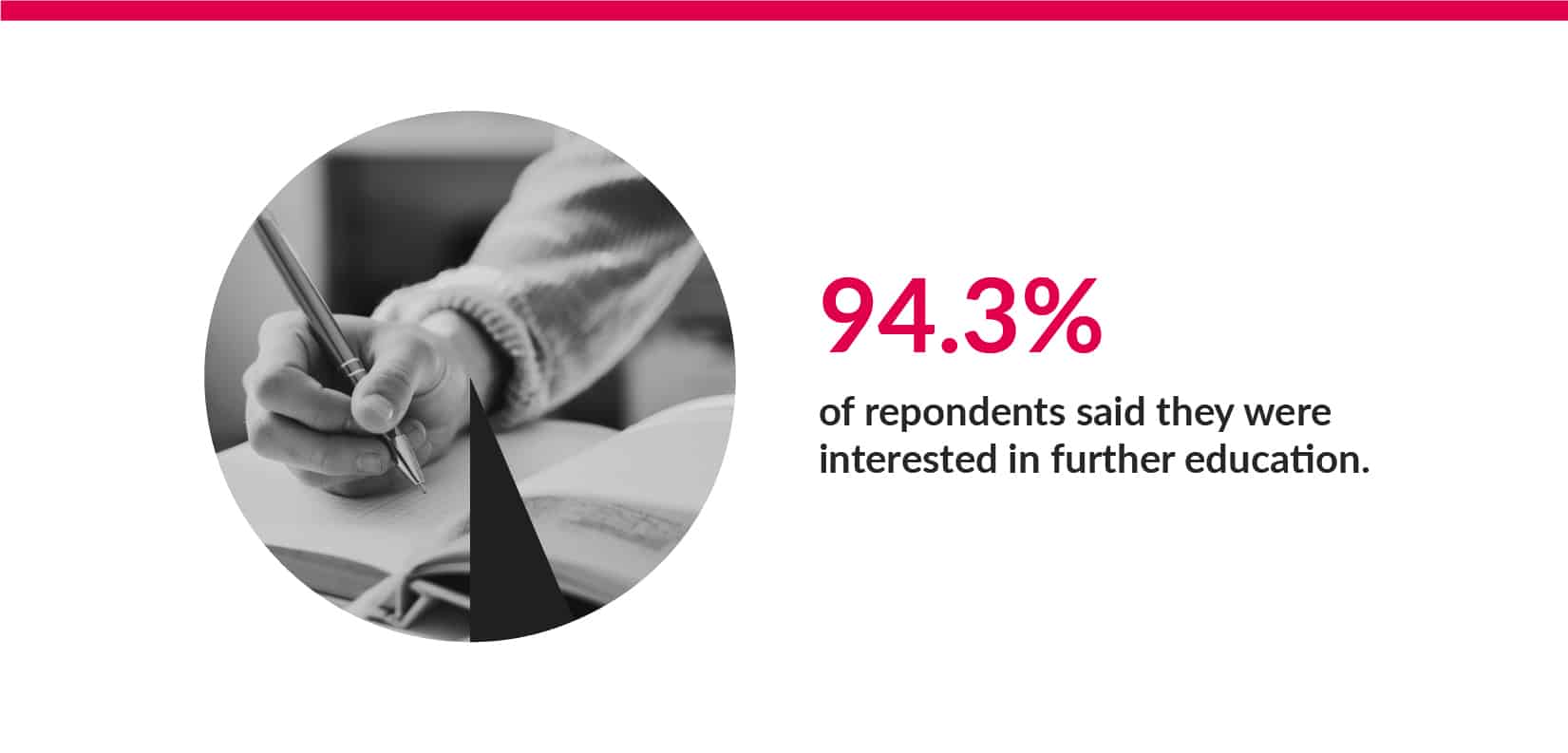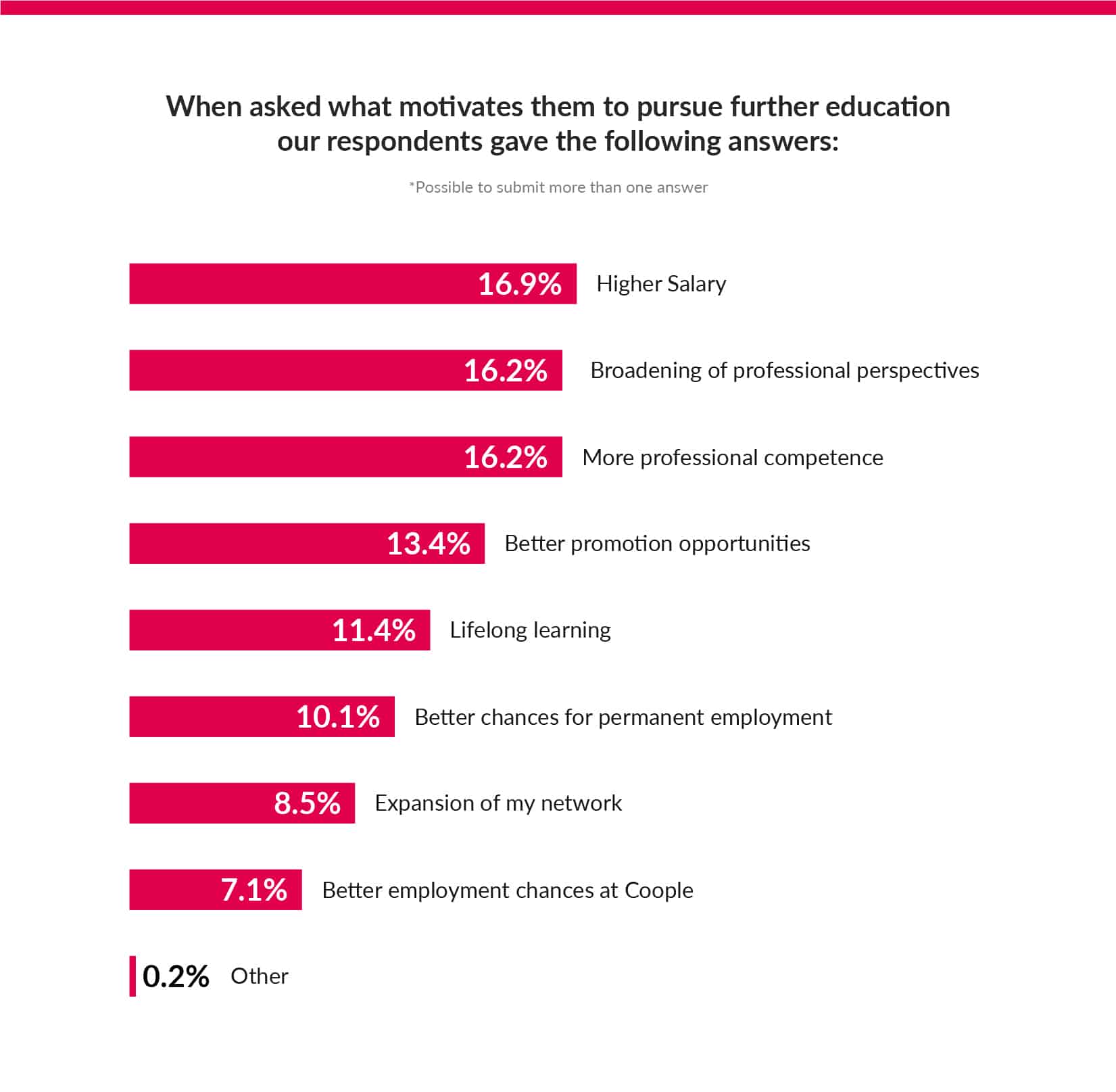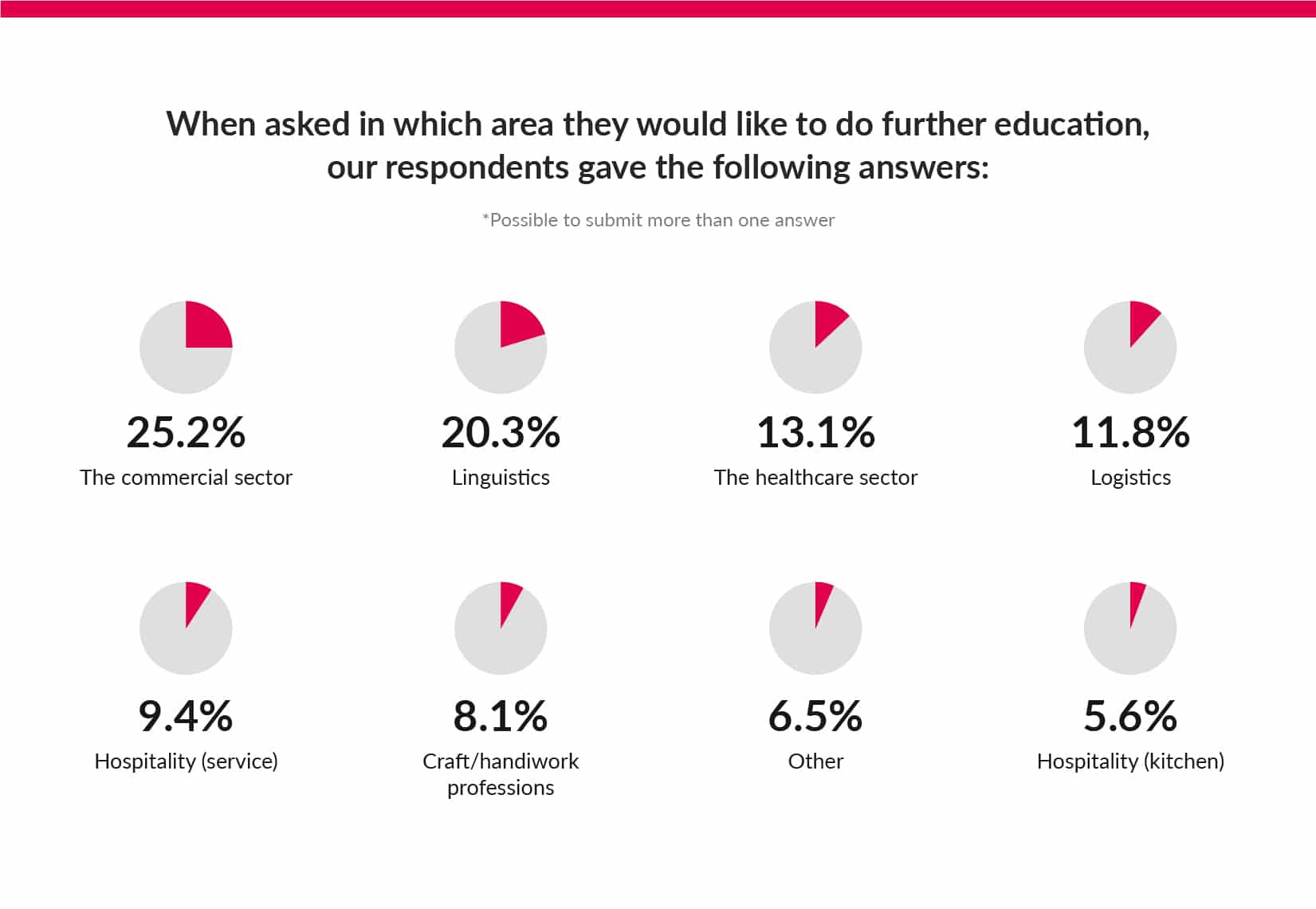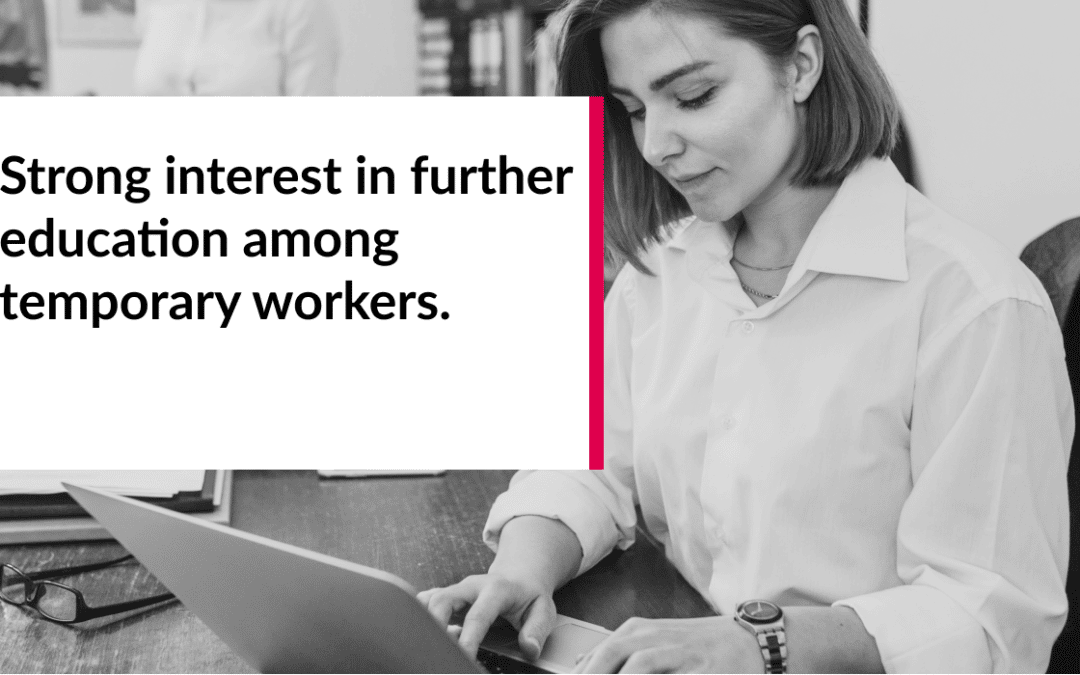Further education opportunities in the workplace is key to gaining new qualifications and supporting one’s professional development. Further education not only offers attractive possibilities to employees, but also proves to be a helpful tool for employers in order to attract quality candidates.
In June 2022, an internal survey was sent to over 4,000 employees of Coople, the digital platform. Those who had worked at least once since 1 January 2022 were asked about their interest in further education, as well as other related factors and industry-specific insights. The average age of survey participants was 36, of which 59% are female and 41% are male. The survey was conducted in three languages (German, French, English) and the results speak clearly about needs, trends and the demand for action.
The vast majority of respondents are interested in further education
Out of the 4,000 users who were interviewed, 94.3% showed interest in further education. Among the few percent who expressed no interest in further education, the most frequent reason given was that they had already completed further education (26.8%), as well as lack of time (22.8%) and lack of financial resources (21.4%).

Wide range of motivations for further education
In terms of individual motivations for further education, participants cited higher wages (16.9%), greater career opportunities (16.2%) and more in-depth professional competence (16.2%) as the most important factors. Other strategic and personal aspects were also important: in addition to better career opportunities, arguments such as lifelong learning, a better chance of finding a permanent job and the expansion of the personal network werealso mentioned.

Commercial and language further education are most in demand among Cooplers
The options for further education are vast. However, a majority trend quickly emerged among the respondents. A quarter of the respondents indicated a desire for further education in the commercial sector, closely followed by 20% of participants citing an interest in further education in languages. Further education in the health sector and in logistics was also frequently mentioned. A special focus of the survey on the hospitality industry revealed exciting sector-specific insights. Hospitality employees were keen to pursue further education in the areas of “sales & guest service”, “wine knowledge”, “practical training” (e.g., carrying 3 plates, serving drinks, etc.), “preparation tasks” and “basic service knowledge”.

Duration of further education is a key factor – timing less so
When it comes to the duration of further education, there are clear preferences. Just under a quarter of those surveyed would like further education to last longer than three months in order to be able to deeply and intensively learn about a subject. A full 28.1%, on the other hand, would like further education to last between a few hours and a maximum of one day. Employees want either an intensive examination of certain topics or a rapid expansion of their own skills in order to be able to put what they have learned into practice as quickly as possible. The hour of the day and the day of the week of the further education are of secondary importance – not least because the respondents enjoy flexible work, where their time can be divided up as they wish.
“Our Cooplers are subject to the Collective Bargaining Agreement (CBA) on Staff Leasing and can therefore benefit from a training budget from temptraining. What many people don’t know is that they are entitled to up to 5,000 Swiss francs for as few as 88 hours of temporary work. This benefit enables temporary workers to constantly expand their professional skills and knowledge and to develop professionally,” says Sabina Neuhaus, Group Head of Communications.

